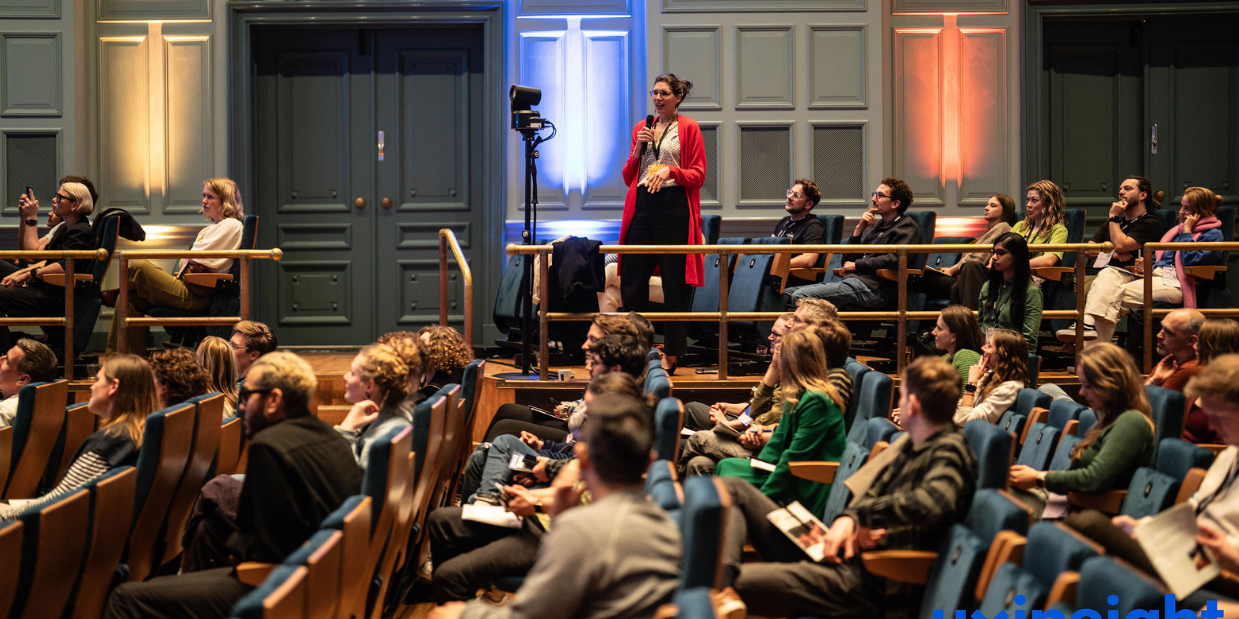Raising the Bar: Insights from the UX Insight Festival 2025

Last week, I joined over 500 UX researchers from 34 countries at the three-day UX Insight Festival in Leiden, The Netherlands. I’m leading Stravito’s UXR initiative, so I was excited to connect with the global research community and learn how teams around the world are tackling industry challenges we see daily.
The theme of the UX Insight Festival this year? Raising the Bar. And that’s exactly what we did.
This year’s event challenged attendees to rethink their roles and push their boundaries. Not just as researchers, but as strategic players shaping product and business outcomes within their organizations.
I’m here to share a few takeaways from various sessions that stuck with me over the event and why they matter for professionals trying to turn insights into impact.
Strategy Should be a Plan to Win
On day one, UX expert Dalia El-Shimy kicked things off by discussing strategy in depth. Too often, we throw this term around in the industry without a shared understanding of what it really means.
But Dalia’s definition of strategy was clear: it’s your plan to win. It’s a long-term approach aligned with your mission and vision, which should be reimagined every three to five years. Strategy is about leveraging a unique strength that others can’t replicate.
Every good strategy, Dalia shared, includes:
- A diagnosis: This involves clearly defining the problem and its root causes. This is the time to introduce descriptive and causal research, market research, and user-centered framing.
- A guiding policy: At this stage, think about your high-level problem-solving approach to the diagnosis. Use generative studies, design vision, early concept development, and testing for this step.
- Coherent actions: These are the key actions and steps to take and how they’ll be coordinated. Drive change and put the plan into action with design sprints, ideation and co-creation workshops, iterative design, and evaluative research.
Duolingo’s Gamification Strategy
Dalia’s example of Duolingo reframing its competition was interesting. She explained that Duolingo doesn’t compete against other learning classes, apps, or schools. Instead, it competes against games and social media platforms.
This kind of strategy begins with a bold diagnosis and a research team willing to look beyond usability tests:
- Diagnosis: Spending time learning a language makes people feel better than spending time on games and social media.
- Guiding Policy: Duolingo offers a feel-good experience and productivity in the games and social media space.
- Coherent Actions: An engaging streak system, including meaningful notifications, varied lessons, leadership boards, and social networks, makes learning enjoyable with Duolingo.
Let’s Stop Saying “Validate”
Mixed-methods research leader Iris Latour’s session focused on reframing something many of us struggle with: being brought in to help too late and asked to “validate” an idea. This often leads to being stuck in a constant testing loop.
But research isn’t about greenlighting a decision. It’s about learning the best decision to make.
Iris shared a powerful example of a stakeholder who was concerned research would invalidate a long period of work. Instead of accepting that tension, Iris turned this testing period into a co-creation opportunity and a safe space. She invited the team into the process, reducing fear and creating a more collaborative research approach.
Some quick pieces of advice from Iris:
- Replace “validate” with “learn”
- If stakeholders ask you to “validate”, remind them of the purpose of the research and introduce language that invites “exploration”
- Test rough, unpolished concepts early and often
- Create a working model that’s “fit for purpose” rather than one that seems perfect
These small shifts help position researchers as helpful partners rather than gatekeepers, encouraging stakeholder trust and collaboration.
Research Is Often Great, but the Delivery Isn’t
Detective-turned-researcher Joseph Marcantano nailed many of our blind spots: “We don’t have a research problem. We have a presentation problem.”
Research is usually well done and of high quality. However, research is often unheard of by other stakeholders in many organizations and doesn’t drive impact.
In many cases, when it comes to presenting research to stakeholders, the more information provided, the less influence it has. That’s when sharing insights in short, snackable bites with headers, bullet points, and storylines becomes invaluable.
Joseph made a strong case for flipping the research process around. Approximately 20% of the job needs to involve understanding the study—but 80% should be about learning about your stakeholders and communicating with them well. This isn’t necessarily how much time should be spent on each activity, but rather the impact they drive—and therefore how they should be prioritized. If we want insights to land, we need to address stakeholder’s goals and cut the noise.
Make Insights Impossible to Ignore
During his session, UX researcher Jordan Vient made it clear that delivering insights means more than creating decks.
Jordan outlined some key rules to ensure research doesn’t get lost in translation:
- Speak your stakeholder’s language: Align with their business goals and what they’re interested in.
- Make insights impossible to ignore: Push them into stakeholders’ daily flow.
- Track what happens next: There’s no point in creating research if you aren’t aware of the impact it makes.
Insights should be accessible, actionable, and embedded in an organization’s everyday work. Because what good is research if nobody sees it?
Let’s Raise the Bar Together
UX research is evolving fast. To stay relevant and ahead of the game, we can’t just be study executors. We need to be storytellers, strategists, and change agents. The future of UXR isn’t just about better methods but greater impact.
At Stravito, we provide the tools to help your work become seen, shared, and acted on.
Curious how Stravito can help your team place insights at the heart of decision-making? Get in touch or book a demo today, and let’s keep raising the bar.
Related Content

The Role of AI in Decision-Making: Smarter Insights or Faster Mistakes?
Thor Olof Philogène Apr 3, 2025
%20(3).png)
